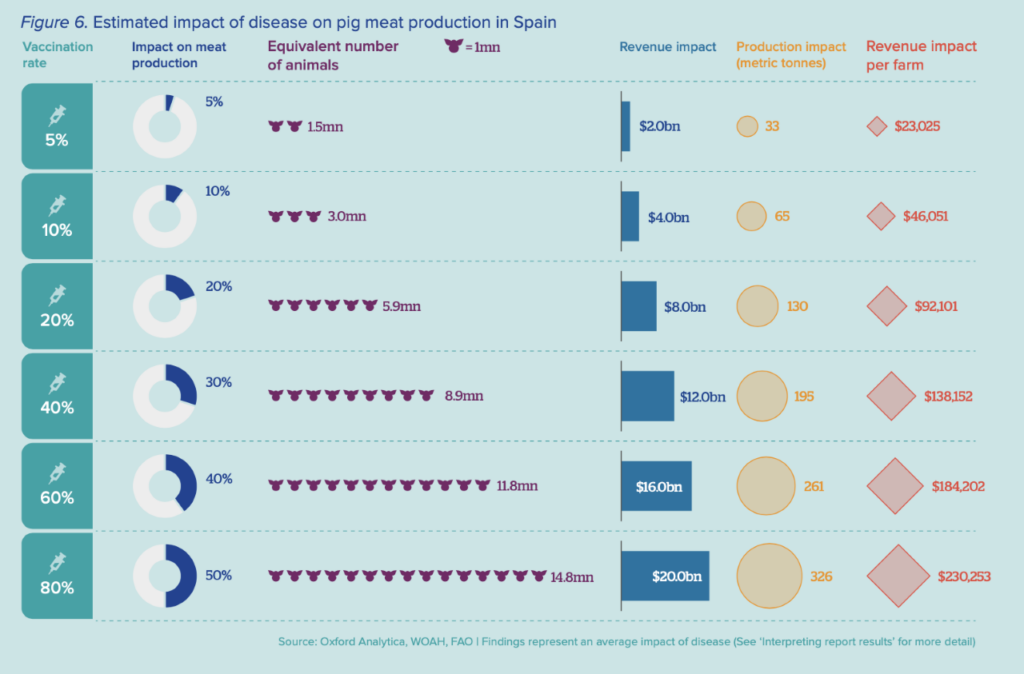The report of the Global HealthforAnimals Federation has just been published in relation to the contributions of animal health to livestock sustainability in its three aspects: environmental, social and economic.
It is a scientific report prepared independently by the specialist research and analysis consultancy “Oxford Analytica”, based on data mainly from FAO and OMSA from 180 countries in the period from 2005 to 2022.
Greater adoption of current animal husbandry and health practices would be enough to feed a growing population of more than 9 billion people, without increasing emissions into the environment.
It is a global report, which provides interesting data on the contributions of health to sustainability. These are the main conclusions:
Economic Sustainability: A global vaccination rate of 60% in beef cattle is associated with an increase in productivity of more than 50%.
Environmental Sustainability: A 10% reduction in animal diseases is associated with a reduction in greenhouse gases of 800 million tons.
Social Sustainability: Globally, on average, the vaccination of two bovines is correlated with one person avoiding a famine situation.
ACCESS to the reports: full and a summarized version.
The report also offers case studies showing the economic impact of diseases that has been quantified in annual production losses of $358.4 billion.
On the other hand, it is concluded that greater adoption of current practices on animal health and husbandry would be enough to feed a growing population of more than 9 billion people, without increasing emissions into the environment.
Overall, the report shows how animal health can be a solution for sustainability and climate.
In particular, Global HealthforAnimals highlights the impact of diseases in the pig herd in Spain, concluding that a disease outbreak affecting 20% of the pig census in Spain in a given year would lead to a decrease in production of 130 tons the following year. , which would be equivalent to the loss of 6 million pigs, with a loss of income per farm of 92 thousand dollars.
This case shows the positive impact of vaccinating pig herds in Spain in terms of socio-economic and environmental sustainability, as indicated in the following graph.

















